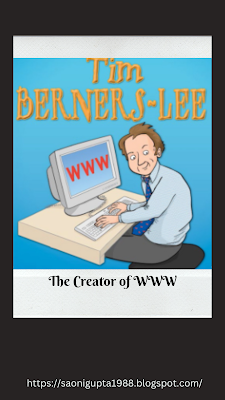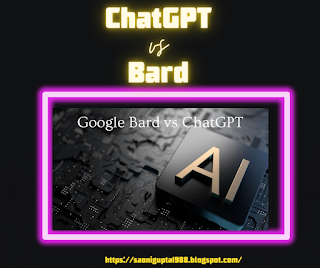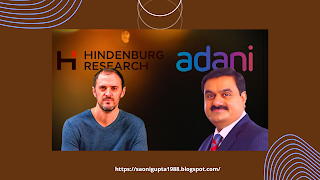Tim Berners-Lee: The Web Wizard
Our daily lives are greatly impacted by the internet. It is the backbone of the modern world, connecting people and businesses across the globe. However, most of us don't know who created the internet and how it all began. The name Tim Berners-Lee might not be familiar to many, but he is the man who invented the World Wide Web, a system that has revolutionized the way we communicate, work, and live. In this blog, I will delve into the life and work of Tim Berners-Lee, the forgotten hero.
Early Life and Education
Tim Berners-Lee was born in London, UK, on June 8, 1955. His parents were both mathematicians, and he grew up in a home that valued intellectual curiosity and exploration. Berners-Lee's interest in technology began at an early age. He was fascinated by how machines worked and would spend hours taking apart and reassembling gadgets around the house.
Berners-Lee studied physics at the University of Oxford, where he was introduced to computers. He became interested in programming and began experimenting with computer systems. In 1976, he graduated with a degree in physics and went on to work for several tech companies, including Plessey Telecommunications and D.G. Nash Ltd.
The Invention of the World Wide Web
Berners-Lee began working for the Swiss-based European Organization for Nuclear Research (CERN) in 1980. CERN was one of the largest and most respected research organizations in the world, and it was here that Berners-Lee had the idea that would change the world forever.
At that time, CERN had a large number of researchers from different countries, and communication between them was a challenge. Each country had its own computer systems and data formats, making it difficult to share information. Berners-Lee realized that there was a need for a universal system that could allow researchers to easily access and share information regardless of their location.
In 1989, Berners-Lee invented the World Wide Web, a system that would revolutionize the way we access and share information. A network of connected hypertext documents that could be accessed online was known as the World Wide Web (WWW). It allowed people to browse the web using a web browser, which made it easy to navigate through different websites and access information.
Berners-Lee also developed the Hypertext Transfer Protocol (HTTP), a set of rules for transferring data over the internet, and the Hypertext Markup Language (HTML), a language used to create web pages. These inventions formed the foundation of the World Wide Web and are still used today.
Impact of the World Wide Web
The invention of the WWW has had a profound impact on society. It has changed the way we interact, conduct business, and live. The web has made it easy for people to access information from anywhere in the world. It has also made it easy for businesses to reach a global audience.
The web has created new industries and disrupted traditional industries. Online shopping, for example, has become a multibillion-dollar industry, while traditional brick-and-mortar stores have struggled to keep up. The web has also revolutionized the way we consume media. Streaming services such as Netflix and YouTube have changed the way we watch television and movies.
The web has also had a significant impact on social and political activism. Social media platforms such as Twitter and Facebook have given people a voice and a platform to organize and share their views. The Arab Spring, for example, was largely organized through social media, and it led to the overthrow of several governments in the Middle East.
Recognition and Awards
Despite his groundbreaking invention, Tim Berners-Lee remained relatively unknown for many years. However, in the 1990s, the World Wide Web began to gain widespread use and popularity, and Berners-Lee started to receive recognition for his work.
In 1994, he founded the World Wide Web Consortium (W3C), an organization that develops and maintains web standards. The W3C has played a crucial role in the development of the web and has helped to ensure that it remains accessible to all.
For his contributions, Berners-Lee has won a plethora of prizes and honors. In 1995, he was awarded the Association for Computing Machinery's Turing Award, which is considered the highest honor in computer science. In 2004, he was awarded a knighthood by Queen Elizabeth II for his services to the World Wide Web.
In recent years, Berners-Lee has become an outspoken advocate for a free and open internet. He has expressed concerns about the monopolization of the web by a few large tech companies and the increasing threat to personal privacy online. In 2019, he launched a new project called Solid, which aims to give people more control over their personal data and the way it is used online.
Conclusion
Tim Berners-Lee is often referred to as the "forgotten hero" of the internet, but his contributions to the development of the World Wide Web have had a profound impact on society. The web has transformed the way we communicate, work, and live, and it has created new opportunities and challenges.
Berners-Lee's invention of the World Wide Web was a game-changer that has influenced the course of human history. His vision of a universal system for sharing information has become a reality, and it has enabled people from all over the world to connect and collaborate in ways that were once unimaginable.
Today, as we continue to navigate the challenges of a rapidly changing digital landscape, it is important to remember the contributions of pioneers like Tim Berners-Lee. His work has laid the foundation for the internet as we know it, and his legacy will continue to shape the future of technology and society for generations to come.







Great Personality 👍
ReplyDeleteAbsolutely 😌
DeleteInformative 👍
ReplyDeleteThank you so much !!! 😊
Delete